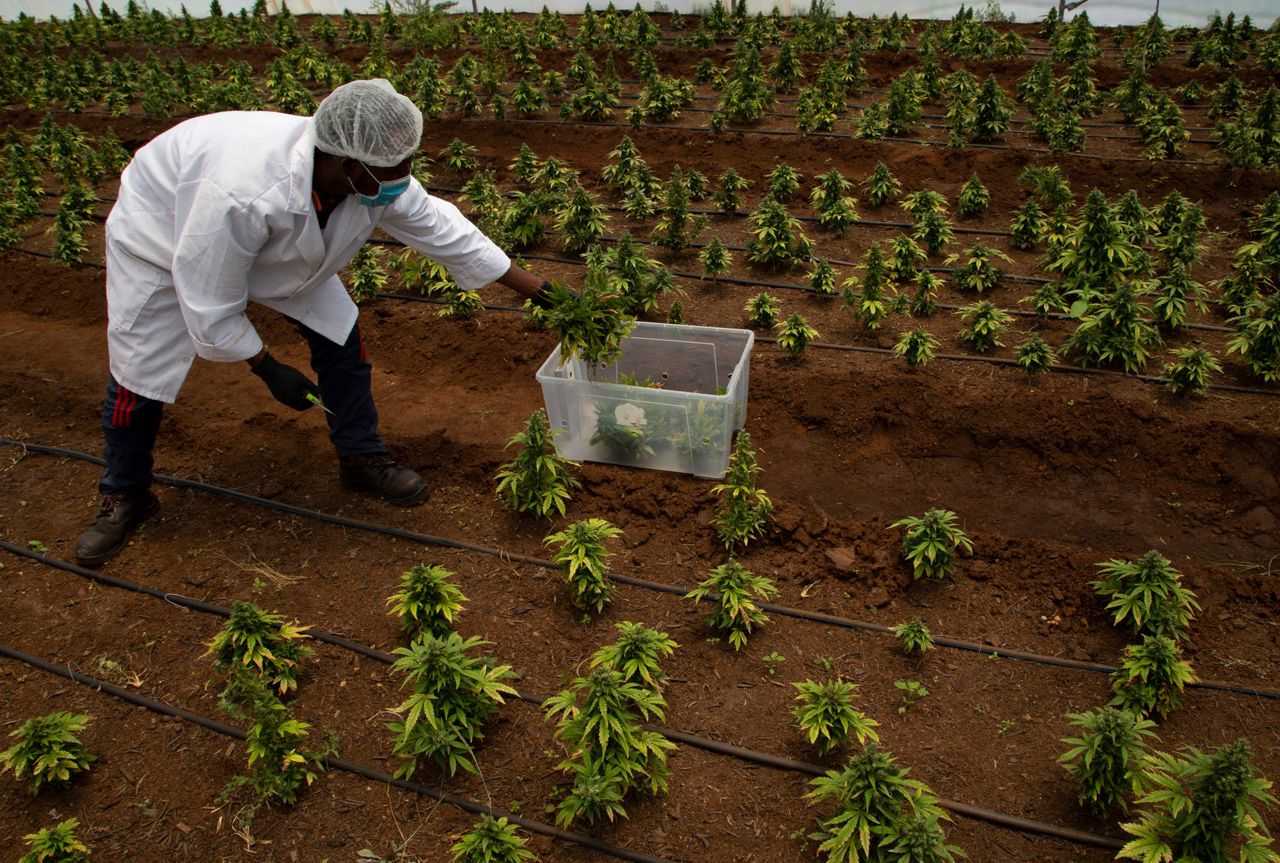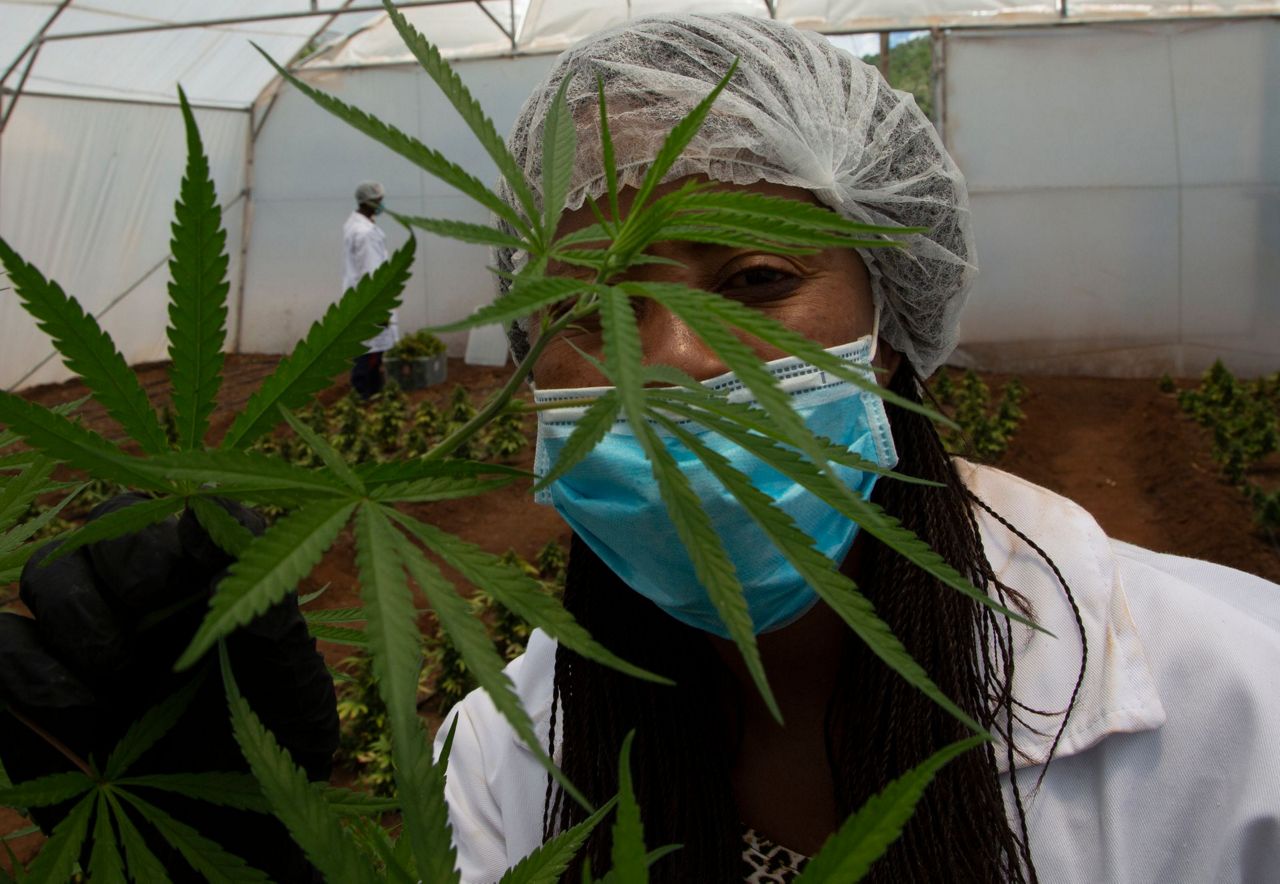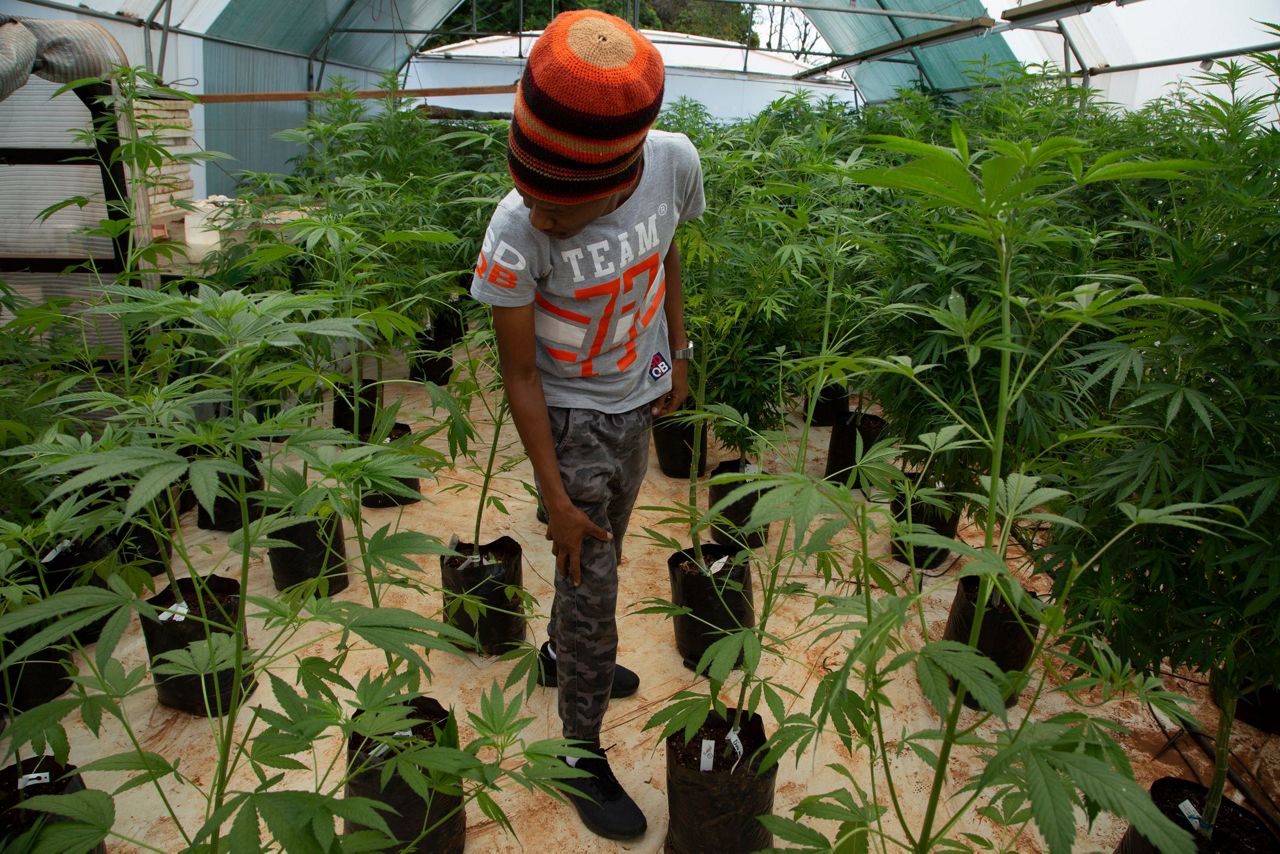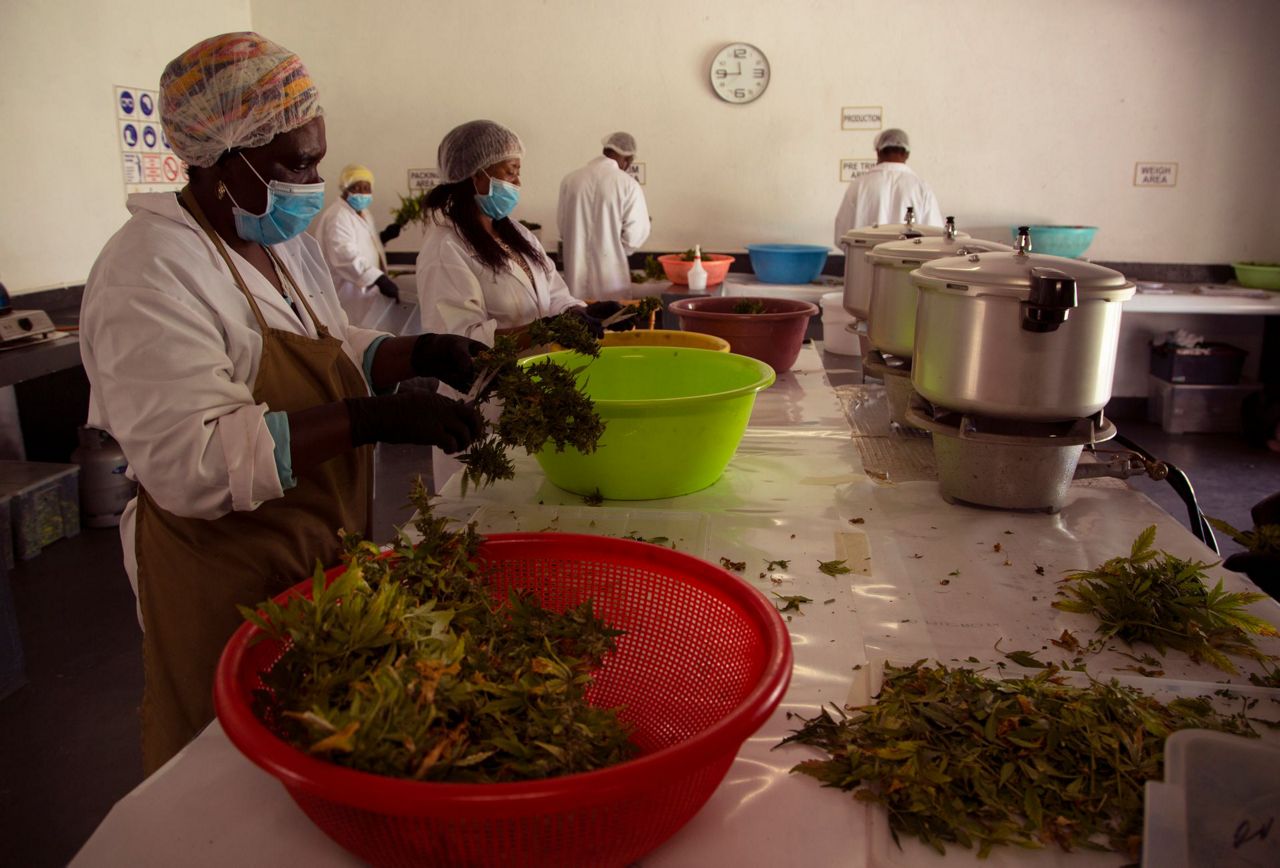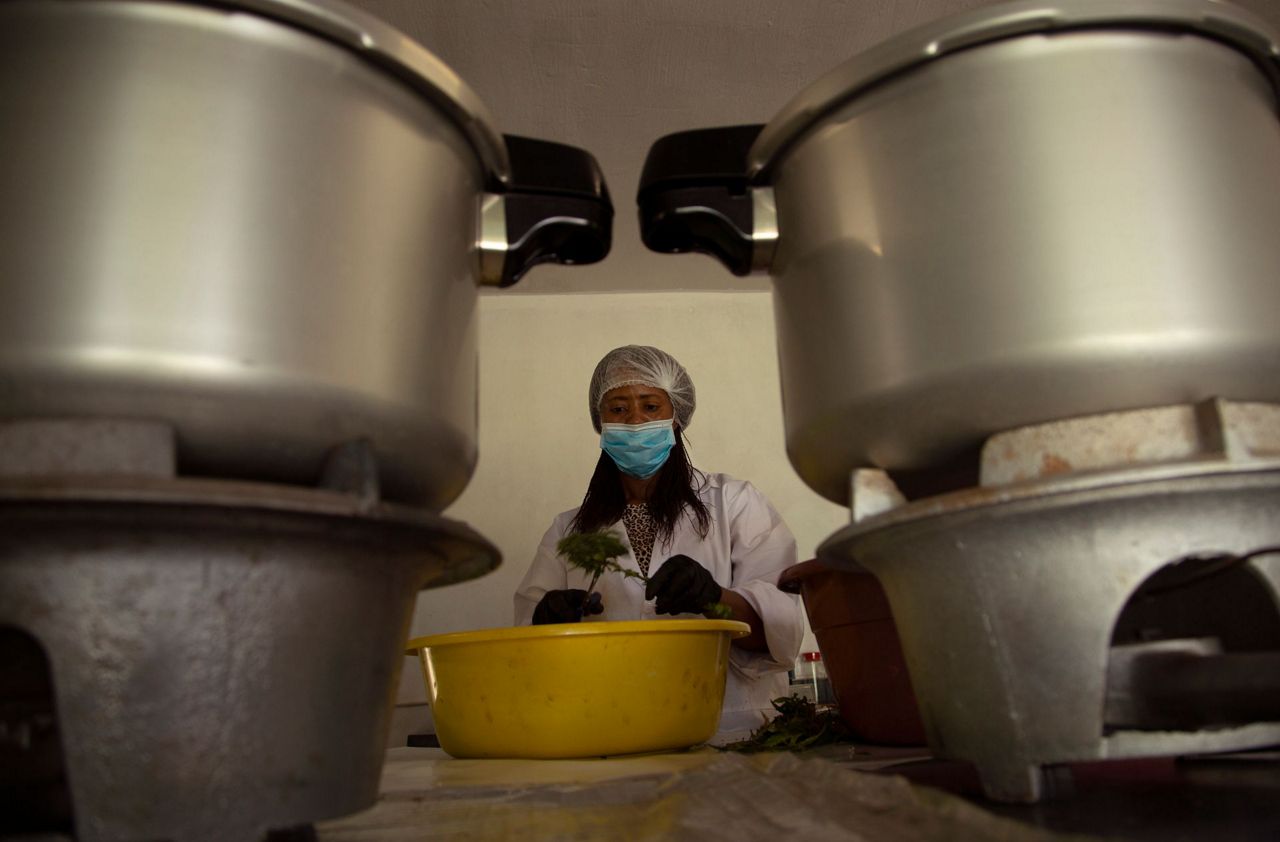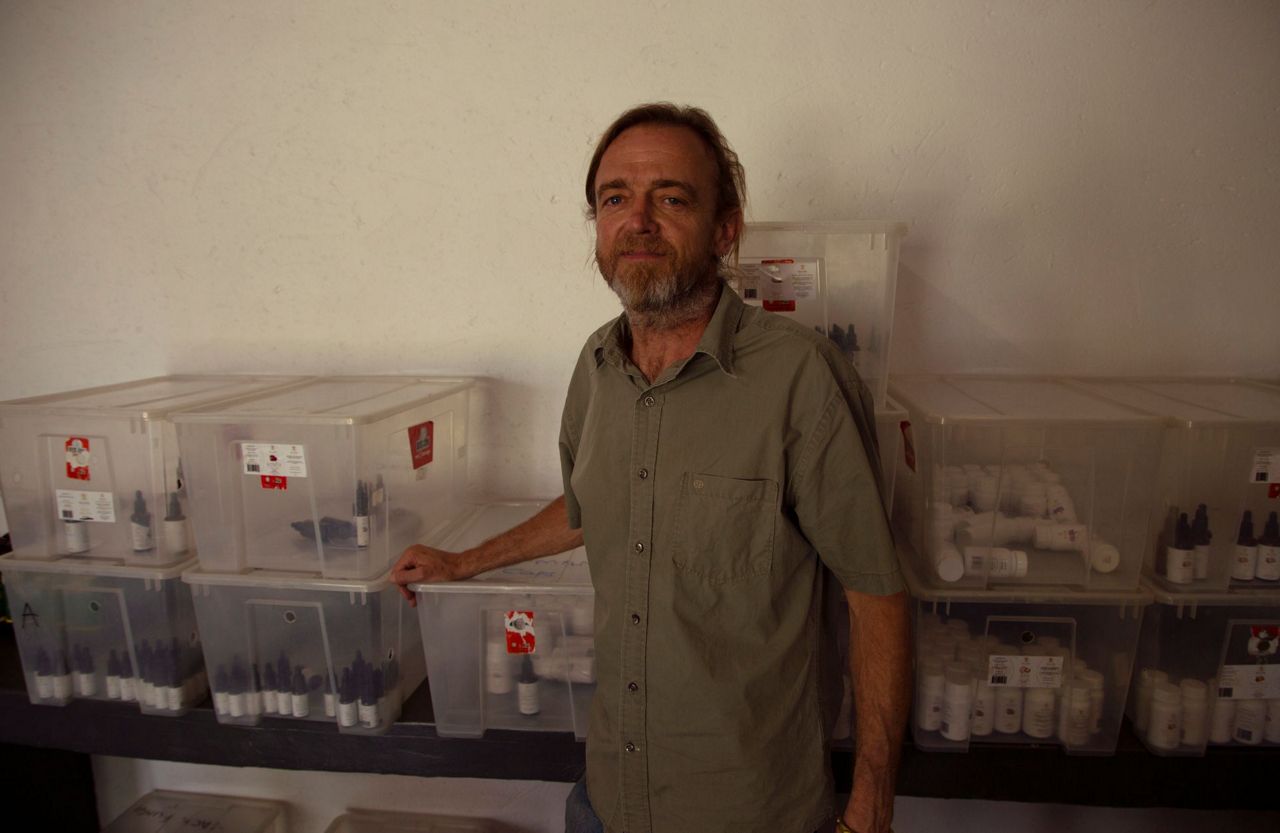HENNOPS, South Africa (AP) — Stacks of bright green cannabis plants, freshly harvested from nearby hothouses, are expertly sorted on a lab table by workers wearing hygienic gloves and caps who snip the leaves and buds and put them in bins for further processing.
Druid's Garden in Hennops, about 20 miles north of Johannesburg, is a licensed farm which conducts research, legally produces cannabis and other traditional medicinal products for sale in South Africa and international markets.
The farm's founder, Cian McClelland, said one of his aims is to help smaller-scale, black farmers enter South Africa's potentially lucrative marijuana market.
“One of the most important aspects of this industry is for us to find ways to uplift small farmers, particularly black rural farmers,” said McClelland. “We would like to play an active role around the country, in partnership with the Heritage Trust, to help ... provide access to these markets.”
McClelland knows that rural black farmers, who have grown marijuana traditionally but illegally, are now fighting to benefit from the country's relaxation of cannabis laws.
Following the Constitutional Court's decision in 2018 to decriminalize the personal use and cultivation of cannabis, South Africa's cannabis industry could be worth more than $23 billion by 2023, according to a recent report by data collection agency Prohibition Partners.
However, there are concerns on the ground that black farmers who have been working for decades in what has been an illegal industry may miss out on the potential boom.
Many smaller growers cannot afford to get the licenses needed to grow marijuana for medicinal and research purposes.
The stringent requirements include getting police clearances, registering a specified plot size, erecting high-tech security fencing, getting irrigation systems and setting up agreements with overseas buyers, among others. The cost of establishing a legal marijuana farm is estimated to be $200,000 to $350,000, according to a South African agricultural publication, Landbouweekblad.
The new marijuana industry could soon be controlled by big pharmaceutical companies, cutting out long-time growers, say agricultural experts.
Some successful black farmers like Itumeleng Tau are working to train emerging farmers to grow and process cannabis up to the standards required to obtain medicinal permits.
"If an ordinary farmer in the homelands (rural areas) is being required to have two hectares (5 acres) of land or one hectare (2.5 acres), fully fenced, while they have been farming when it was un-fenced and nobody was stealing it, it is quite impractical," said Tau.
Moleboheng Semela, a cannabis activist and general secretary of the Cannabis Development Council, is among those fighting to get licenses for those who had previously grown and sold cannabis illegally.
Her organization helps emerging farmers to obtain permits to cultivate cannabis and produce medicinal products.
"We have those communities that have been involved in the cannabis industry before the court ruling, but we have seen that our government is more focused on the (producers of) pharmaceuticals," said Semela.
South Africa's cannabis industry is growing so quickly that marijuana conventions are popping up across the country.
A recent cannabis expo held in Johannesburg's posh Sandton Convention Center attracted hundreds of marijuana activists, farmers, growers and exhibitors from across the world. The expo grew from 58 exhibitor stands last year to more than 200 stands this year, according to expo director Silas Howard.
"It just goes to show how big and how fast this industry has grown," said Howard.
South African president Cyril Ramaphosa recently touted the country's cannabis industry as an important sector in the country's fight against unemployment.
“We note that the cultivation of cannabis ... can play an important role in uplifting the poorest regions in the country,” Ramaphosa told a community meeting in the rural town of Lusikisiki in the Eastern Cape province in September last year. The province is among the areas in South Africa where cannabis has been grown by many subsistence farmers for generations, despite laws against it. The Eastern Cape's provincial government last year sent a delegation to Canada to research cannabis cultivation and product development.
However South African law enforcement agencies remain resolute in arresting those producing without permits. In November, police arrested three people for operating a hydroponic lab in Brits, outside the capital Pretoria, confiscating more than $200,000 worth of cannabis.
"The investigation aims to clamp down on the unlawful mushrooming of cannabis dispensaries around the country," said police spokesman Captain Tlangelani Rikhotso.
At Druid's Garden, Cian McClelland, said the bar does not necessarily have to be so high for new entrants.
“Going for a full pharmaceutical license is very expensive and out of reach of most rural people,” he said. “So what we are advocating for is to use our center as a training facility, to bring people from rural communities and teach them low-tech models that are within their means to be able to go back into their communities and implement relatively easily."
Copyright 2020 The Associated Press. All rights reserved. This material may not be published, broadcast, rewritten or redistributed.



